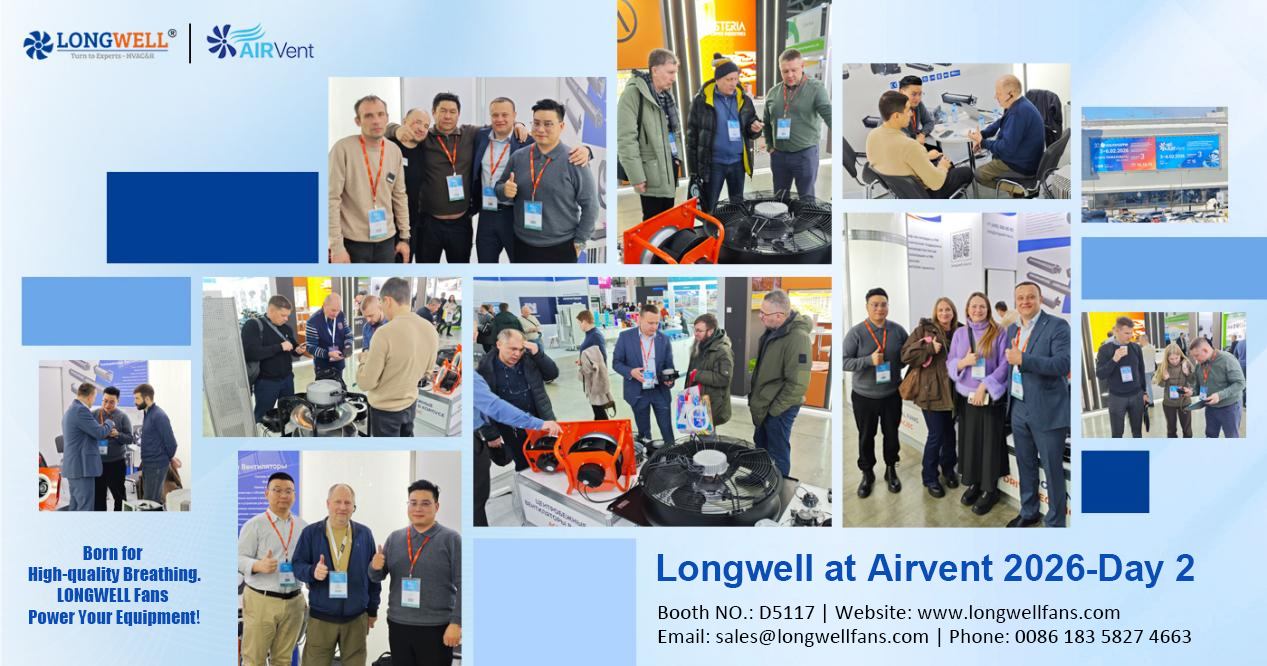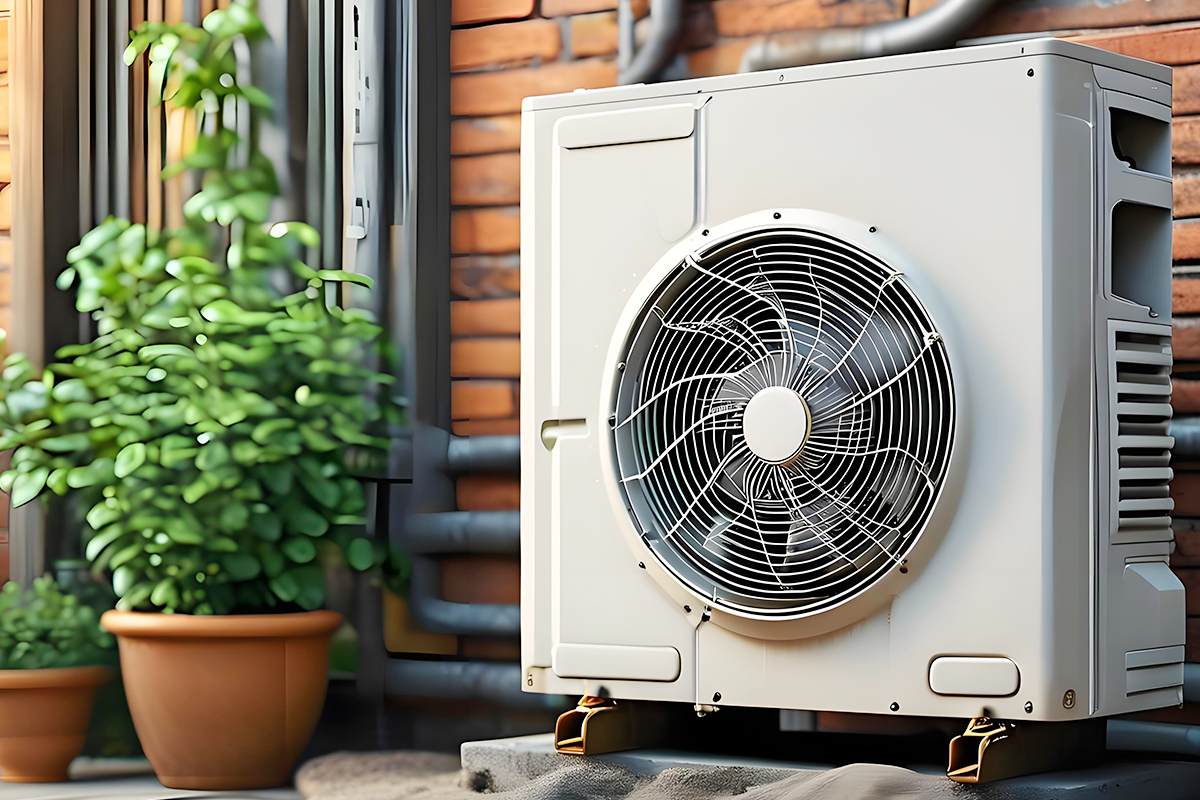
Introduction
Understanding HVAC is key for a comfortable home. A new HVAC system consists of heating, ventilation, and air conditioning. It helps control the temperature and keeps the indoor air quality healthy. In this guide, we will go over the basics of HVAC systems. We will explain their parts and how they work.
We will also discuss energy efficiency, types of systems, maintenance tips, and costs. Let’s look into HVAC together. This will help you learn more, so you can make better choices for your home comfort and well-being.
Exploring the Meaning of HVAC
HVAC means Heating, Ventilation, and Air Conditioning. It is important for making our indoor areas comfortable. Heating keeps us warm when it’s cold outside. Ventilation brings in fresh air and takes out stale air. Air conditioning keeps the temperature nice and cool. When these systems work together, they help improve air quality, control humidity, and keep us healthy. Learning about HVAC is essential. It helps us create a good indoor environment for our daily lives.
Unpacking the Acronym: Heating, Ventilation, and Air Conditioning
Heating, ventilation, and air conditioning, known as HVAC, are important for keeping indoor spaces comfortable. Heating warms us up when it’s cold outside. Natural ventilation brings in fresh air and removes extra humidity and carbon dioxide. Air conditioning helps to manage temperature and keeps humidity at a good level. All these systems work together to improve temperature, airflow, and indoor air quality. This makes everyone feel better and healthier inside. HVAC plays a key role in making indoor air a nice place to be.
The Importance of HVAC in Daily Life
HVAC systems are very important in our lives. They help improve the air quality at home. This makes the indoor air feel nice and comfortable. These systems also control humidity. They filter out harmful particles, which creates a healthy environment for us. In winter, they keep our spaces warm. In summer, they cool them down. This makes us feel good and helps us work better. HVAC systems protect our furniture and electronics too. They can even stop mold from growing. So, HVAC systems are essential for a healthy place to live or work.
The Core Components of an HVAC System
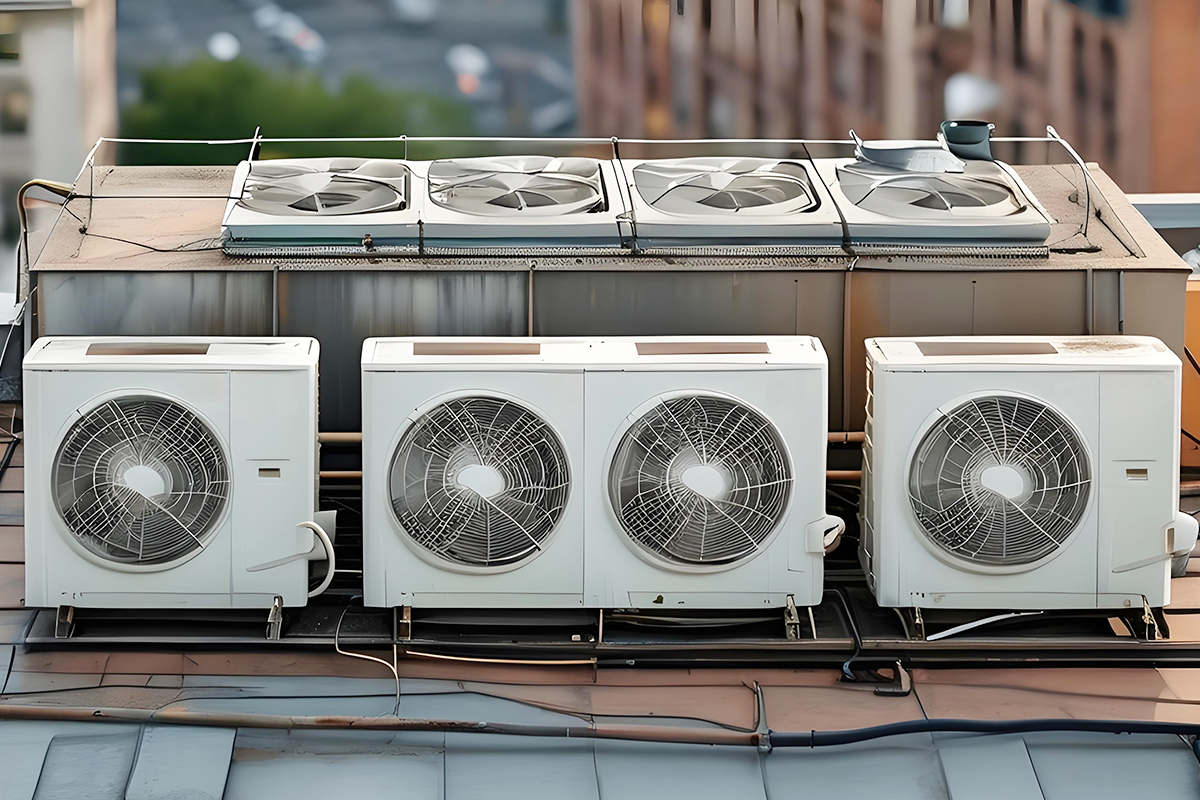
The main parts of an HVAC system include:
- Air conditioners
- Heat pumps
- Furnaces
- Boilers
- Air handler and ventilation systems
Air conditioners and heat pumps keep places cool. Furnaces and boilers provide warmth. Ventilation systems control airflow and air quality inside buildings. This is important for comfort and health. All these parts work together to manage temperature and humidity. They also circulate fresh air. This helps make indoor spaces feel more comfortable and enjoyable.
Understanding Air Conditioners and Heat Pumps
Air conditioners and heat pumps are important parts of an HVAC system. Air conditioners cool a room by removing heat using a liquid called refrigerant. Heat pumps have two functions. They can cool or heat a space by moving heat from inside to outside. These systems keep our indoor comfort pleasant by controlling temperature and humidity. It is important to understand how air conditioners and heat pumps work. This knowledge helps them work better and use energy wisely.
Furnaces and Boilers: Heating Solutions
Heating systems, such as furnaces and boilers, are important for HVAC systems. They give extra heat to keep your home warm in colder months. Furnaces push heated air through ducts to warm up rooms. Boilers heat water or steam to provide warmth. Understanding these heating options is crucial for good indoor air quality and comfort. Both furnaces and boilers also help improve indoor air, making your home feel cozy during very cold winters.
Ventilation: Ensuring Air Quality
Proper ventilation is very important. This includes mechanical ventilation. It helps keep the indoor air quality good. It works by bringing in fresh air and getting rid of stale air. Ventilation systems let air flow and move around. This helps cut down on pollutants, bad smells, and too much moisture. A space with good ventilation is more comfortable and healthier for everyone. Good ventilation systems are needed to reduce indoor air pollutants. They also help stop the growth of allergens and harmful germs. In short, ventilation is key to keeping high air quality inside.
How Do HVAC Systems Operate?
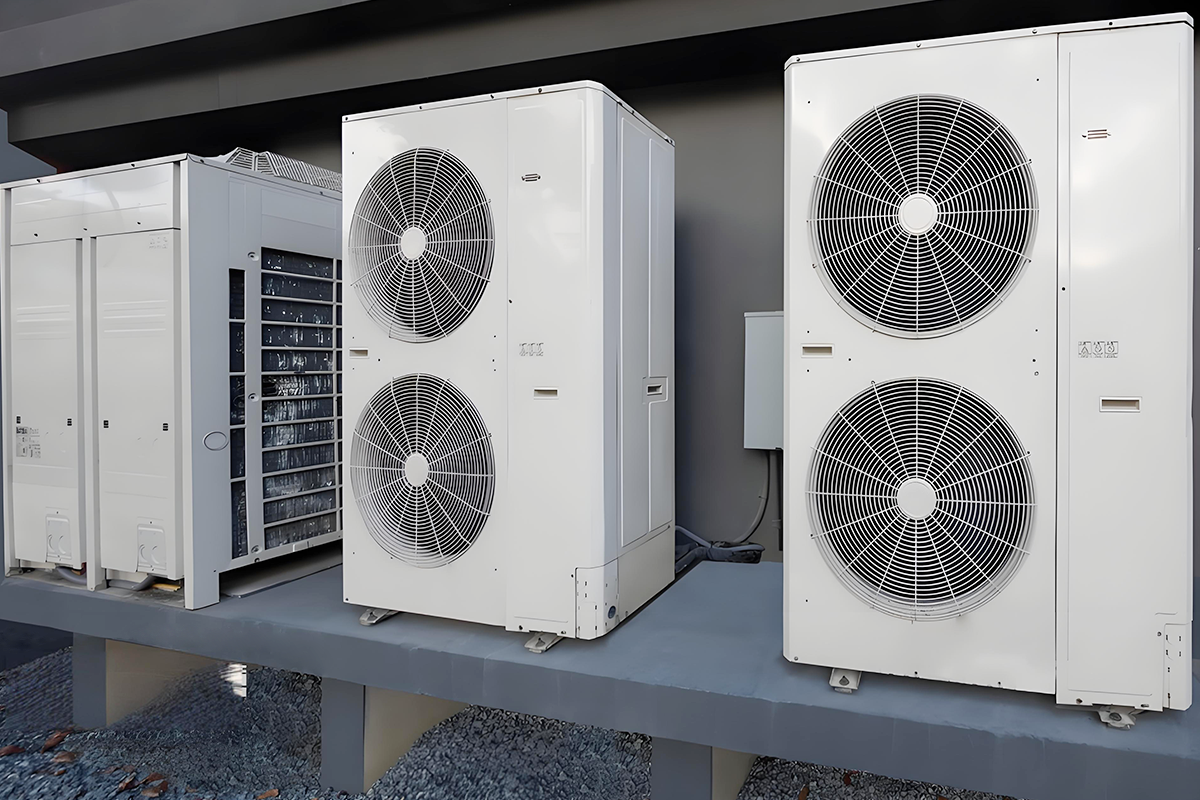
HVAC systems are important for controlling the temperature and improving air quality. They work by either heating or cooling the air. Thermostats are essential for keeping a comfortable temperature. It is good to understand how this system operates so it continues to work effectively.
The Cycle of Heating and Cooling
The HVAC system keeps you comfortable by controlling the temperature. It heats or cools the air in cycles. This system also controls how cold air moves through the indoor coil and the outdoor units. A part called the reversing valve helps the flow of refrigerant between these units. This makes the system work better.
In the heating cycle, the heat pump picks up heat from the outside air and moves it inside. In the cooling cycle, it takes heat from inside and sends it outside. This system helps maintain a steady indoor temperature all year round.
Role of Thermostats in HVAC Systems
Thermostats are important parts of HVAC systems. They help control the temperature to keep you comfortable and save energy. These devices read the temperature and tell the system when to heat or cool the air. This helps keep your indoor space at the right temperature.
Programmable thermostats allow you to set various temperatures for different times. This can help save energy. Smart thermostats improve on this. They learn your preferences and adjust the settings automatically. This makes things simpler for you and can also help you save money.
- Their careful control helps the whole system work better.
- It also makes your home a more pleasant place to be.
Different Types of HVAC Systems
- A split system has an outdoor unit and an indoor unit.
- They are common in homes in America because they work great.
- A hybrid system uses heat pumps and gas furnaces for better comfort.
- Ductless systems can fit in different rooms and do not require ducts.
- Each type meets different needs, like being efficient, comfortable, or fitting in small spaces.
- By understanding these systems, you can choose the best one for your home and space.
Split Systems: A Popular Choice for American Homes
Split systems are common in many homes in America. They are a flexible way to heat and cool your home. A central heating system has two main parts: an indoor unit and an outdoor unit. The indoor unit controls the temperature inside your home. The outdoor unit releases heat in the summer and absorbs heat in the winter. This setup gives homeowners a practical and affordable HVAC system. It works well in various weather conditions and meets the needs of each household.
Hybrid Systems: Combining Efficiency and Comfort
Hybrid systems provide comfort and high energy efficiency. They mix old-school heating and cooling methods. A hybrid system uses a heat pump system with a gas furnace that burns natural gas. This pairing helps it work well in different weather conditions. By using both electric and gas heating, hybrid systems improve energy efficiency. They also keep indoors comfortable all the time. This setup meets different needs. Because of these benefits, hybrid systems are popular with homeowners who want affordable and reliable HVAC options.
Ductless Systems: A Solution for Every Space
Ductless systems give you many options for different places, including new buildings. Ductless air systems can heat and cool areas efficiently. They do not need a lot of ductwork. Often called mini-split systems, they have one outdoor unit that connects several indoor units. This setup allows better temperature control in various rooms or spaces. These systems are great for both homes and businesses. They work well where regular HVAC systems might not be effective. People like them because they enhance comfort and energy efficiency.
Energy Efficiency and HVAC
Improving energy efficiency in HVAC systems is very important. It saves you money and helps the environment. New ideas, like SEER ratings and energy-saving technologies, change how we think about heating, cooling, and ventilation. By knowing the energy efficiency ratio, you can pick better upgrades or new systems. This helps you feel comfortable while lowering your costs. With these upgrades, homeowners can improve indoor air quality, reduce energy costs, and support a greener future.
SEER Ratings Explained
SEER stands for Seasonal Energy Efficiency Ratio. It tells us how well an air conditioner cools a room. A higher SEER rating shows better cooling performance. This rating compares the cooling a unit provides during the season to the energy it uses. A high SEER rating can help you lower energy costs. In the United States, new air conditioners must meet a minimum SEER rating. By knowing about SEER ratings, you can pick better air conditioning options. This can save you money and help you use energy wisely.
Innovations in Energy-Saving HVAC Technologies
Smart thermostats are helping us save energy for heating and cooling. They learn your preferences and change their settings to match what you like. Air conditioners with inverter technology adjust their speed based on the temperature you want. New furnaces come with heat exchangers that make better use of energy. Variable refrigerant flow systems let you control the temperature in different spaces, saving even more energy. These technologies make our lives easier. They help cut down energy usage, which is good for the environment and saves money on heating and cooling costs.
Maintenance Tips for Your HVAC System
- Regular check-ups from HVAC experts are important for your system to work well.
- Schedule maintenance once a year to keep everything running smoothly.
- Simple tasks, like changing air filters, can help improve air quality.
- Keep your outdoor units clean and free of dirt so air can flow easily.
- Check your thermostat settings and fix any problems right away.
- By following these tips, you can help your HVAC system last longer and avoid big repairs.
- Make regular care a priority to ensure your system runs well all year.
Regular Check-Ups and Professional Maintenance
Regular check-ups and expert care for your HVAC system are very important. They help your system work well and last longer. When you plan inspections, you can stop problems before they happen. This helps you save energy and keep the indoor air quality high. Skilled technicians can find issues early. This way, you can avoid paying for expensive repairs. Following a maintenance plan helps you make your home comfortable and healthy. Taking care of your HVAC system now will make sure everything runs well in the future.
Simple DIY Maintenance Tasks
- You can make your HVAC system better by doing some easy maintenance.
- First, change the air filters often. This helps improve your indoor air quality.
- Next, keep the outdoor unit free from debris. This helps ensure good airflow.
- Check the condensate drain line and clean it. This avoids clogs.
- Look at the evaporator coil and clean it. This helps it work better.
- Remember to adjust your thermostat settings with the seasons. This can help with energy savings.
- These simple tasks can make your HVAC system last longer and keep your indoor air comfortable.
Choosing the Right HVAC System for Your Home
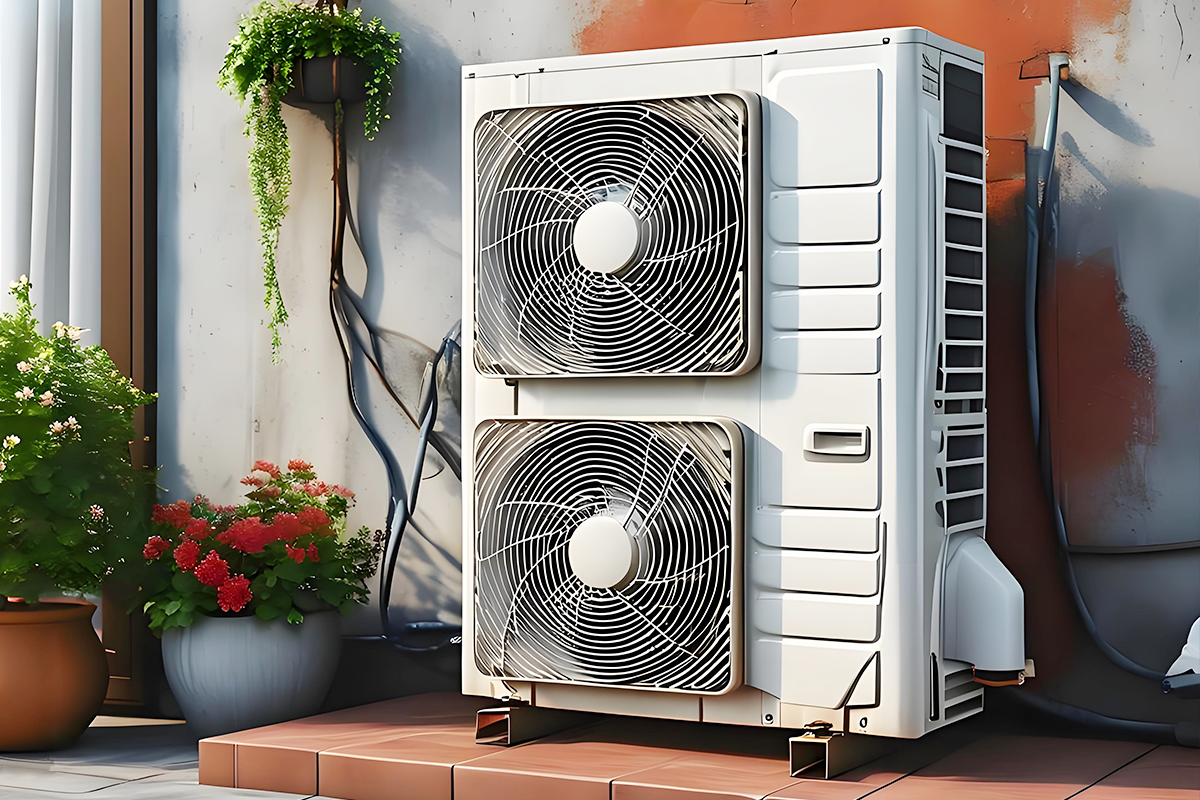
When choosing the right HVAC system for your home, keep a few key points in mind. First, think about how big your space is. Next, consider the climate where you live and how important energy efficiency is to you. Also, think about your budget. These steps can help you make a smart decision. Talking to an expert can give you good advice on the best HVAC system for your needs. By exploring different types of HVAC systems, you can find the best way to make your home feel comfortable.
Factors to Consider Before Making a Decision
When choosing an HVAC system, keep several important things in mind. First, check the size of your space. Next, look at how energy efficient the system is and the costs for installation. It’s also important to consider the climate in your area since this affects your heating and cooling needs. Find out how much maintenance the system will need too. Think about the company’s reputation. Make sure to stay within your budget and consider long-term energy savings. Finally, getting advice from a professional can really help. This way, the HVAC system you choose will fit your needs and keep your home comfortable.
Why Professional Consultation Matters
When you think about HVAC systems, working with HVAC engineers is important. Many of these engineers are members of the American Society of Heating, Refrigerating, and Air-Conditioning Engineers. HVAC systems can be complex. You need the right knowledge to choose the best one for your home. Experts can assess what your home requires. They can suggest the most efficient systems and make sure they are installed the right way. Their skills can help you avoid costly mistakes and ensure your system runs smoothly.
Talking to experts can save you money in the long run. They can show you ways to save energy and share good maintenance plans. Their advice can help you make smart choices for a comfortable and affordable HVAC system.
The Cost of HVAC Systems
Understanding the costs of an HVAC system is important before you make a purchase. The price can change based on the type of system you select and the size of your property. Installation can also affect the overall cost. Prices might increase or decrease over time. It’s wise to consider the savings from energy-efficient models. Don’t overlook the cost of maintenance to keep the system running well for a long time. When you think about HVAC system costs, keep in mind to compare what you pay now with the benefits you will get later.
Initial Investment vs. Long-Term Savings
When you think about HVAC systems, pay attention to the cost today and the savings you will have later. The initial price may seem high. However, if you choose a system that is efficient, you will save a lot on energy consumption and energy costs over time. A system that saves energy can lower your monthly bills. This helps cut down your expenses. In the long run, it’s a wise choice for homeowners. You can find a good balance between cost, comfort, and taking care of the environment.
Understanding the Range of HVAC System Prices
When you review HVAC system prices, there are several important points to consider. First, look at the size of your home. Next, pick the type of system you want. Remember to consider extra features too, like smart thermostats and air purifiers. A basic HVAC system often costs between $3,500 and $7,500. If you choose a more advanced or energy-efficient system, the cost can exceed $10,000. It’s a good idea to discuss your options with HVAC professionals. They can give you quotes that fit your needs and budget.
Installation: What to Expect
When you choose to install an HVAC system, it is helpful to understand the steps from the Bureau of Labor Statistics. A professional will first examine your space. They will select the best spot for the unit. Then, they will set up all the necessary parts, like ductwork, to make sure everything works as it should. An HVAC technician will take care of this task. They will ensure that all the parts function well together for good heating, ventilation, and air conditioning in your home.
The Process of Installing an HVAC System
The steps to put in an HVAC system are essential for it to work well. First, the team checks the property. This helps them pick the right type and size of the HVAC system. Next, they get the site ready for the install. They place the indoor and outdoor units and connect the ductwork. They might also add other parts, like air purifiers or thermostats. Finally, they test the system carefully. This ensures it works correctly and meets the standards before handing it over to the owner.
Selecting the Right Contractor
- When you choose a contractor for your HVAC system, make sure they are licensed, bonded, and insured.
- Look for certifications such as NATE or HVAC Excellence.
- Check their references and read reviews to see if they are trustworthy.
- A good contractor will closely inspect your home before recommending a system.
- This ensures you get the right HVAC repair services when needed.
- Clear pricing and written estimates are very important.
- Choose a contractor who offers warranties on their work and equipment.
- Good communication and professionalism are essential for a smooth installation.
Conclusion
Knowing what HVAC means is important. It plays a big role in our daily lives. It helps us feel comfortable and keeps our indoor air quality good. If you know the main parts of HVAC systems and how they work, you can make better choices to save energy. Taking care of your HVAC system is essential. Choosing the right HVAC system for your needs is also key. This can boost efficiency and save you money in the long run. A well-kept HVAC system benefits your comfort, health, and the environment.
Frequently Asked Questions
How often should HVAC systems be serviced?
HVAC systems need to be serviced every year. This makes them work better and saves energy. Regular maintenance can help avoid expensive repairs and make your system last longer. It’s smart to get a professional tune-up to keep your HVAC system running well.
Can I install an HVAC system myself?
Installing an HVAC system yourself is a bad idea. It includes complicated wiring and dealing with refrigerants. You also need to make accurate calculations. These tasks are better left to professionals. If you do it on your own, you may run into problems like less efficiency and safety risks. You could even lose any warranties you already have. It’s smarter to get help from an expert. This way, the installation will be done correctly and safely.
What is the lifespan of an HVAC system?
The HVAC system normally lasts 15 to 25 years. Its lifespan depends on how well you take care of it and how often you use it. Regular maintenance can help it last longer. Knowing this can help you prepare for when you need to replace your HVAC system.
How can I make my HVAC system more efficient?
- Upgrade to energy-saving HVAC models.
- Set up regular check-ups for maintenance.
- Change thermostat settings to help it run better.
- Improve insulation and seal air ducts.
These steps can help you perform better. They can also lower your energy costs.
What’s the difference between HVAC and air conditioning?
HVAC stands for heating, ventilation, and air conditioning. Air conditioning is mainly used for cooling. But HVAC is more than just cooling. It also includes heating, ventilation, and humidity control. Knowing these differences can help you understand more about indoor climate control systems.
